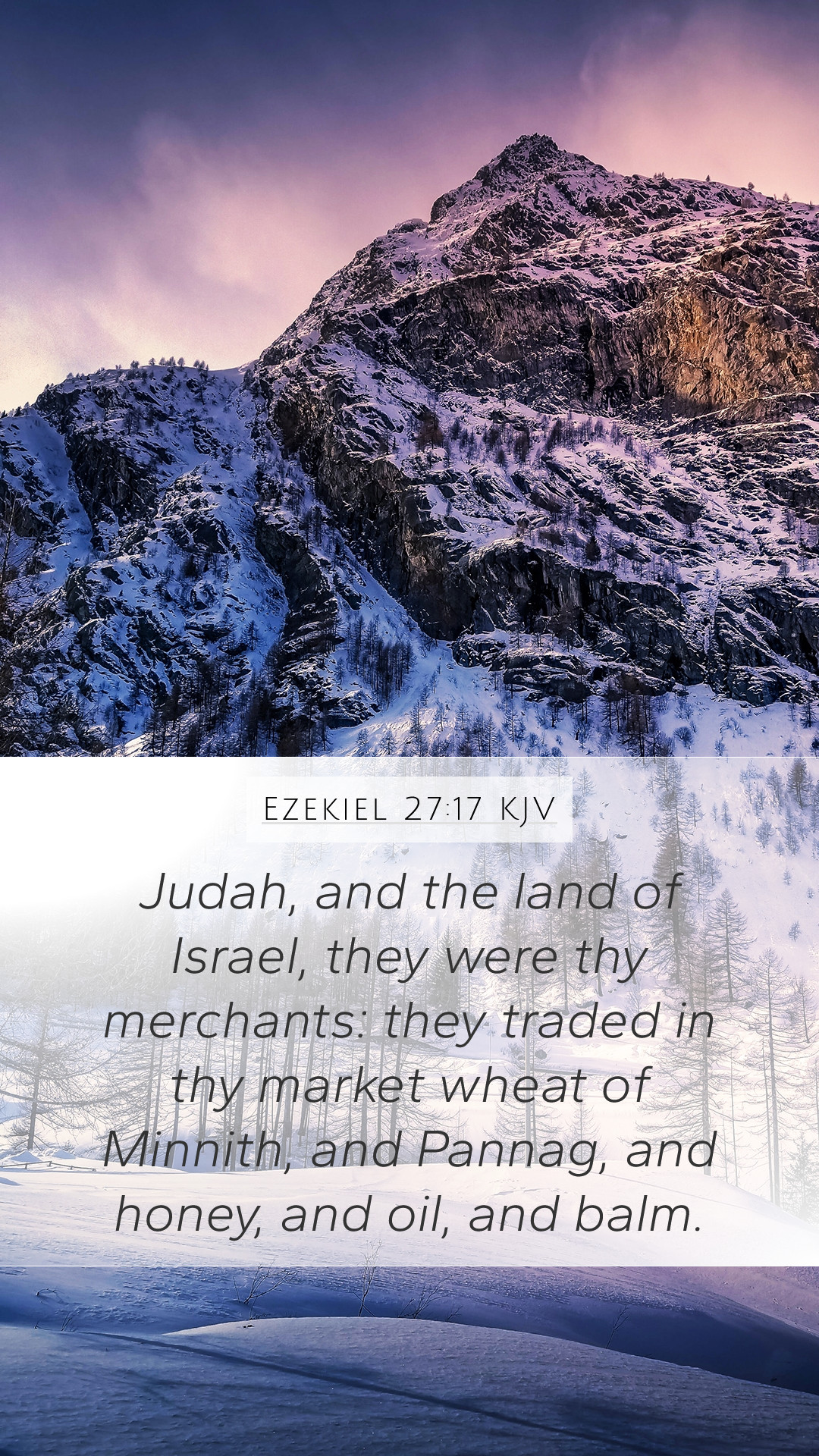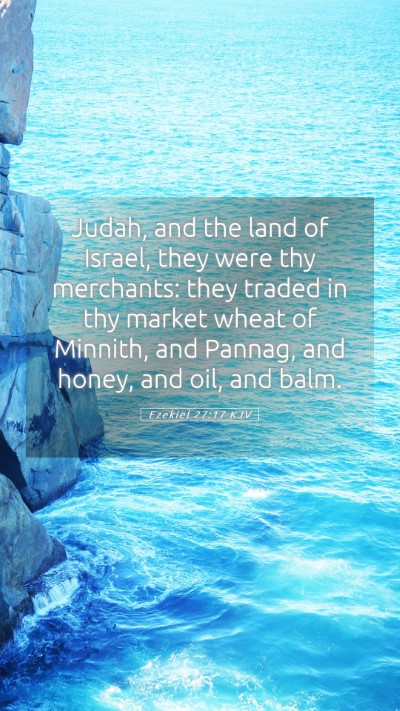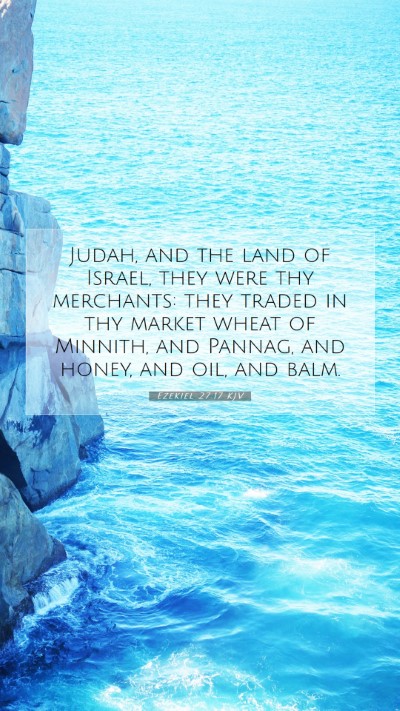Ezekiel 27:17 - Understanding the Verse
The verse Ezekiel 27:17 reads: "Judah and the land of Israel were your merchants; they traded with you in wheat of Minnith, meal, honey, oil, and balm." This verse provides a glimpse into the trade relationships and mutual dependencies within the ancient Near East. Here, we explore the meanings and interpretations drawn from esteemed public domain commentaries.
Bible Verse Meanings
This verse highlights the commerce between Tyre, represented as a flourishing marketplace, and the lands of Judah and Israel. The mention of various goods signifies the agricultural abundance and the strategic importance of these regions in trade.
Bible Verse Interpretations
Commentators, including Matthew Henry, elaborate on how Tyre is portrayed as prosperous due to its significant trading relationships. Albert Barnes notes that the goods mentioned served both as commodities and as indicators of the richness of the lands involved. Adam Clarke suggests that this exchange illustrates not just economic ties but also cultural interactions, pointing to the impact these relationships had on the Israelite identity.
Bible Verse Understanding
To understand this verse fully, one must grasp the historical context of trade during Ezekiel’s time. Ancient trade routes were crucial for prosperity, and the connection to Judah and Israel reinforces their role in the broader economic landscape.
Bible Verse Explanations
The verse serves as a reminder of the interconnectedness of neighboring nations. The products listed—wheat, meal, honey, oil, and balm—were not only vital for sustenance but also held significant cultural and religious importance in Israelite society.
Insights from Public Domain Commentaries
-
Matthew Henry: He emphasizes how the prosperity of Tyre depended largely on external trade, with Judah and Israel being significant contributors. The passage reflects a broader theme of reliance on one another.
-
Albert Barnes: Barnes interprets the goods listed as emblematic of the wealth that came from these regions. He notes that oil and honey, for instance, were staples in Hebrew life, suggesting the deep reliance on agricultural trade.
-
Adam Clarke: Clarke sheds light on the cultural implications of these trade ties, discussing how trade relationships can lead to cultural exchange and influence, which played a part in the spiritual life of the Israelites.
Additional Bible Cross References
- Ezekiel 27:1-2: The broader context of Tyre's proclamation as a merchant.
- Isaiah 23:1: Describes Tyre's fall and its significance in trade.
- Revelation 18:11-13: A lamentation over the fall of Babylon, drawing parallels to the merchant theme present in Ezekiel.
Conclusion
In summary, Ezekiel 27:17 encapsulates the intricate web of economic relations that existed among ancient nations and provides insights into the life and culture of the Israelites. By leveraging these public domain commentaries, readers can gain a richer understanding of this scripture, illuminating the importance of trade and community thus expanding the bible verse interpretations and understanding Scripture.
Further Study Suggestions
- Explore the role of Tyre in ancient trade routes and its significance in biblical accounts.
- Investigate the agricultural products of ancient Judah and how they impacted the economy and culture.
- Join bible study groups to engage in discussions about the importance of trade in the biblical context.


